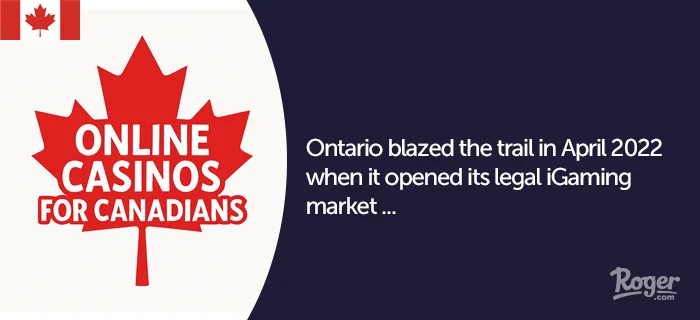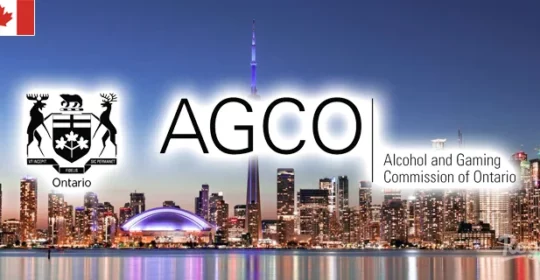Canada's online casino landscape is shifting dramatically. What was once a patchwork of government-controlled monopolies is slowly giving way to competitive, regulated markets that actually work for players.
Ontario blazed the trail in April 2022 when it opened its legal iGaming market, and the results have been nothing short of impressive. Now Alberta is preparing to follow suit, and the implications could reshape how Canadians gamble online for years to come.
If you're curious about where Canadian online gambling is heading—and what it means for players—you're in the right place. Let's dive into this transformation.
- Ontario’s open market model and player growth
- Proven success through revenue and channelisation
- Alberta prepares to join the regulated market
- From monopoly to competition in Alberta
- National implications of the licensing shift
Ontario’s open market model and player growth
Ontario didn't just tweak its gambling laws—it completely revolutionised them. The province became the first in Canada to welcome private iGaming operators, abandoning the traditional approach of government-only online gambling sites.
? Here's what made Ontario's approach so different:
Instead of forcing players to use a single government-operated platform, Ontario created a licensing scheme that allows multiple private companies to compete for players' attention.
The Alcohol and Gaming Commission of Ontario (AGCO) oversees everything, ensuring operators stay above board whilst allowing genuine competition to flourish.
The result? Players now have access to some of the best online casinos in Canada, offering unprecedented choice, variety, and security. It's a far cry from the limited options Canadians had before.
This wasn't just a policy change—it was a complete reimagining of how online gambling could work in Canada. And the numbers prove it's working brilliantly.
Proven success through revenue and channelisation
The results speak for themselves. Ontario's regulated market isn't just surviving—it's absolutely thriving.
? In 2025, Ontario will generate gross gaming receipts of more than CAD 3.2 billion from iGaming in a single financial year.
This impressive figure has been driven primarily by online casinos, particularly slot machines and table games, many of which are now available through popular licensed operators such as Ruby Fortune Casino.
But it's not just about the money—though that's certainly impressive. Ontario has also achieved remarkable success in curbing unregulated gambling, and this is where the real victory lies.
Before the market opened, approximately 70% of players were accessing offshore or unlicensed platforms. Why? Because they offered better games, more variety, and frankly, a superior experience to what was available locally.
Here's the impressive bit: Today, more than 83% of gamblers in Ontario use legitimate, AGCO-approved websites. This shift—what the industry calls “channelisation”—represents a massive victory for both consumer protection and government revenue.
The strategy worked because Ontario didn't just create regulation—it created genuine competition that could rival what offshore sites were offering.
Players didn't just get safety and legitimacy; they got choice, variety, and competitive experiences that matched or exceeded what they were finding elsewhere.
Alberta prepares to join the regulated market
Alberta watched Ontario's success and decided it was time to act. In May 2025, the province passed Bill 48, officially known as the iGaming Alberta Act.
This bill establishes a comprehensive regulatory framework allowing independent operators to offer online casinos and sports betting under a licence. It represents Alberta's acknowledgement that the old monopoly model simply isn't working in the digital age.
From monopoly to competition in Alberta
Alberta's transformation will be dramatic. Currently, the province only allows one government-operated platform called Play Alberta, which offers limited variety and struggles to compete with offshore alternatives.
The new system will introduce multiple licensed private operators competing for players, overseen by the Alberta iGaming Corporation. The province expects to launch this competitive market in the second half of 2025 or early 2026.
The key insight driving this change? Alberta's lawmakers recognised that players were already gambling online, just not on regulated platforms.
National implications of the licensing shift
Ontario and Alberta's moves are creating ripple effects across Canada that other provinces can't ignore.
The contrast is becoming increasingly stark: provinces with competitive markets are seeing higher player satisfaction, increased government revenue, and better consumer protection, whilst those maintaining monopolies continue to struggle against offshore sites.
British Columbia and Quebec still operate government monopolies, but they're fighting an uphill battle. Their players have access to the same offshore sites as everyone else, but without the competitive, regulated alternatives that Ontario and Alberta are creating.
As Alberta follows Ontario's successful model, other provinces will face mounting pressure to modernise their approach. The question isn't whether other provinces will follow—it's when they'll realise they can't afford not to.





